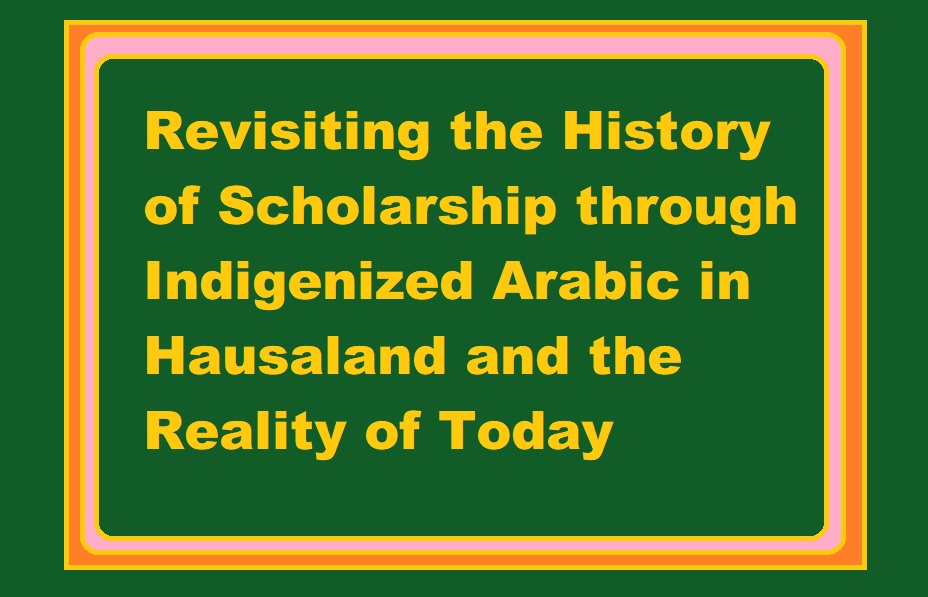Revisiting the History of Scholarship through Indigenized Arabic in Hausaland and the Reality of Today
Revisiting the History of Scholarship
The impacts of Islam on the African continent are immeasurable. It revolutionized the socio-cultural and intellectual landscapes of the Islamized regions all over leaving behind high legacies which even powerful forces such as colonialism could not sweep in totality. In this article, an attempt is made to contribute into the discourse that, Islam and its language (Arabic) has contributed in

the dynamic African landscape ever since the religion got momentum in the continent. The principal process of this change has been through Islamization and Arabization as it is clear in North Africa and the Sudan. Besides, with every step towards Islamization, African societies had responded with the Africanization of Islam so also its language, thereby creating its own modified form. The attention is on Hausaland; the present day North-western Nigeria. The paper will examine the rise of Hausanized Arabic and how it facilitated the development of Islamic scholarship in the area. The paper also concludes by reviewing how British colonialism distorted the use of Arabic language and the reality of the present.
Nura Aliyu[1]
[1]Department of History, Umaru Musa Yar’adua University, Katsina, Nigeria
(currently) Ph D Student in the Department of History,Institute of African Research and Studies,Cairo University, Egypt
nuraali_katsina@katsina
